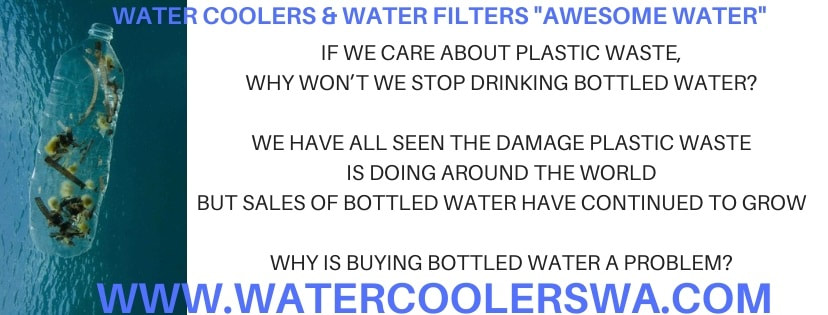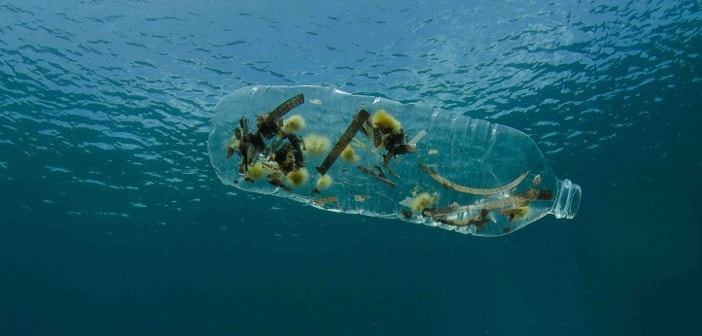BOTTLED WATER
If we care about plastic waste,
why won’t we stop drinking bottled water?
We have all seen the damage plastic waste
is doing around the world
but sales of bottled water have continued to grow
Why is buying bottled water a problem?
It costs you money.
Although people consistently complain about the price of petrol
we spend more per litre on bottled water.
If you were to buy enough bottled water to drink the recommended
intake of 8 glasses per day this would cost you approximately $3650 a year
(based on $2.50 for a 500mL bottle).
The same amount of tap water would cost you just $0.98 per year.
So save the cash and tap it...it’s free!It uses lots of energy.
This is because of the extraction of water, manufacturing of plastic bottles,
transportation, refrigeration and recycling/disposal all use electricity
and fossil fuels such as diesel and petroleum.
The production of bottles wastes finite materials.
Plastic is a petroleum based product.
Petroleum is a resource that is in limited supply and fast diminishing.
We should be using this for essentials not disposables.
Our natural environment and communities are impacted when the
water intended for bottling is diverted away from its natural route.
Bottled water creates large amounts of waste.
Plastic bottles are among the 10 most common rubbish
items picked up on Cleanup Australia Day.
Australia recycles only 36% of plastic drink bottles, so around 373 million plastic water bottles end up as waste each year.
Although people consistently complain about the price of petrol
we spend more per litre on bottled water.
If you were to buy enough bottled water to drink the recommended
intake of 8 glasses per day this would cost you approximately $3650 a year
(based on $2.50 for a 500mL bottle).
The same amount of tap water would cost you just $0.98 per year.
So save the cash and tap it...it’s free!It uses lots of energy.
This is because of the extraction of water, manufacturing of plastic bottles,
transportation, refrigeration and recycling/disposal all use electricity
and fossil fuels such as diesel and petroleum.
The production of bottles wastes finite materials.
Plastic is a petroleum based product.
Petroleum is a resource that is in limited supply and fast diminishing.
We should be using this for essentials not disposables.
Our natural environment and communities are impacted when the
water intended for bottling is diverted away from its natural route.
Bottled water creates large amounts of waste.
Plastic bottles are among the 10 most common rubbish
items picked up on Cleanup Australia Day.
Australia recycles only 36% of plastic drink bottles, so around 373 million plastic water bottles end up as waste each year.
Use a Refillable Water Cooler
Fill with your choice of bottle either refillable, stainless steel,
OR aluminium drink bottle also look for B.P.A FREE
Some research has shown that Bisphenol A (BPA), a key component in polycarbonate plastics, has been found to leach into the water of bottles that are made from it.
Most manufacturers now produce BPA-free plastic drink bottles.
Keep a look out for these when purchasing a Refillable water Cooler.
Tests have shown that the polyethylene terephthalate (PET) plastic used to make disposable plastic bottles can leach heavy metals when left in the sun.
Stainless steel drink bottles are made from food grade materials
and do not leach any chemicals into the water.
They are lightweight, have a long life span and can be recycled at the end of their life.
Aluminium drink bottles are also lightweight; however they need to have a lining to ensure the aluminium doesn’t leach into the liquids.
OR aluminium drink bottle also look for B.P.A FREE
Some research has shown that Bisphenol A (BPA), a key component in polycarbonate plastics, has been found to leach into the water of bottles that are made from it.
Most manufacturers now produce BPA-free plastic drink bottles.
Keep a look out for these when purchasing a Refillable water Cooler.
Tests have shown that the polyethylene terephthalate (PET) plastic used to make disposable plastic bottles can leach heavy metals when left in the sun.
Stainless steel drink bottles are made from food grade materials
and do not leach any chemicals into the water.
They are lightweight, have a long life span and can be recycled at the end of their life.
Aluminium drink bottles are also lightweight; however they need to have a lining to ensure the aluminium doesn’t leach into the liquids.

